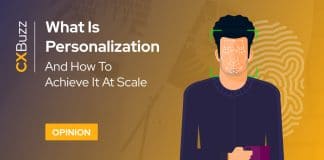Shopping for a car isn’t what it used to be. Especially during the pandemic when visiting a dealership in-person and test driving a car wasn’t an option. Many shoppers had to embrace the digital experience out of sheer necessity. However, in today’s digital age, it is just part of doing good business and those dealers that are embracing digitizing the sales process are seeing remarkable results. This has been the case for Casabaca Toyota.
Founded more than 60 years ago by three brothers, Casabaca Toyota is family-owned and is the largest dealership in Ecuador with over 500 employees across nine dealerships. Like the cars it sells, Casabaca sets the standard for others, constantly innovating and bringing change to an industry that’s remained mostly static in the region.
Casabaca was ready for a digital transformation that would enable representatives to sell smarter, while serving its customers with richer, more connected experiences.
Digital Transformation Holds Many Opportunities for Growth
At Casabaca, we recognized that data was our most important asset. Just five years ago, the dealership’s sales process relied on paper, phone calls, and manual workflows to create leads. By implementing a customer relationship management (CRM) platform, we were able to digitize these processes to conduct simple activities such as collecting data and sending invoices. But eventually, the sales team wanted access to more analytics to understand how many times a buyer had visited a dealership, which products/services were offered to them, how long they were in the dealership, or if they scheduled a test drive or meeting.
As Casabaca’s CRM Manager, my team engaged in a readoption of our CRM platform, using it to house all of the company’s important data, making it easy for sales reps to find what they need. Yet, Casabaca’s sales process was still largely reactive, waiting on new customers to visit a dealership at their leisure and selling to them on the spot. And because Casabaca’s call center wasn’t yet integrated with CRM, reps only had visibility of buyers that physically visited the store. When a prospective customer did call in, reps could only tell sales that someone was coming into the store, but not what the shopper was interested in, whether someone had already spoken to them, or if their interest was from an ad or elsewhere. All buyers were treated the same regardless.
The pandemic changed all this, as public places were closed, and companies were forced to conduct business digitally. To stay afloat, Casabaca needed a way to interact with car buyers online, especially when they couldn’t visit the dealership in-person. Using the data we already had housed in our CRM system, we knew we could build deeper customer relationships with better tracking, nurturing, personalized content, and lead scoring. We were sitting on a data goldmine, but we didn’t know how to use it.
A Digital Foundation to Blaze New Trails
Casabaca’s CRM team worked closely with its marketing team to boost online presence and traffic by connecting the website to the CRM and more closely tracking the data collected. The team also worked hard to implement a digital sales funnel of online leads at the beginning of 2021, combining it with the existing physical sales funnel to capture and monitor opportunities from all sources.
Casabaca previously didn’t have any information on a prospect visiting the dealership for the first time, however, the digital sales funnel now allows representatives to track where a new lead is coming from. Whether leads come from the website, advertisement, or other channel, sales can better understand what the prospect is looking for and even gather some preliminary information, taking the guesswork out of selling.
Casabaca also implemented Zoom meetings and live web chat to engage with interested parties virtually. Though Casabaca was initially skeptical about conducting video calls and financing discussions over Zoom, our customers have loved seeing the brand’s changes and new digital presence.
Under the digital sales process, Casabaca is now able to capture information once, instead of asking customers multiple times. Not only does this provide a better sales experience for customers, but it makes reps more efficient, saving time from digging for data or rekeying information. And with the data collected, reps can have more personalized conversations with prospects, moving through the sales cycle quicker.
A Digital Way Forward
With the ability to talk to buyers in advance before meeting them in-store and scheduling meetings during the pandemic, Casabaca was able to sell almost its entire inventory by the end of 2021. And since implementing the digital sales funnel in June 2021, the dealership now converts 3 percent more leads, while creating loyal customers that keep coming back.
With digital processing, Casabaca has been able to expand sales opportunities to outlying areas such as the Amazon and coastal region, helping Casabaca achieve its goal to become a leader in the South American automotive market. The dealership is even willing to drive test models two to three hours to buyers’ homes, demonstrating a commitment to adapting to customers’ changing needs. The service is especially helpful to people with disabilities, an audience Casabaca takes special care to serve with tax-exempt vehicles.
Still, digital engagement has been about more than improving business results for Casabaca. It has also allowed the company to better serve the community in its time of need. Though automobile leasing isn’t typically practiced in Ecuador, Casabaca developed a program to allow customers to trade in their cars for a lesser value model and receive the cash difference to use as needed. Customers responded strongly to communications about the program, taking advantage of the opportunity to refinance their cars while still keeping one to drive.
In addition, Casabaca launched a new appraisal system to address an underserved market: used cars. Ecuador’s used car market is very informal and is not regulated; resources used in the U.S. such as the Kelley Blue Book or CarMax simply don’t exist. As a result, buying and selling used cars is mostly done through bartering. Casabaca created a model leveraging its own historical data (how much they pay/sell for used cars) and built its own system. With Casabaca’s appraisal system, users can give appraisals, take pictures, and render an initial offer, all from within the CRM. As a result, Casabaca has generated a 70 percent increase in the number of cars appraised and increased conversion rate from offer-to-buy by 5 percent in the first two months of implementation.
Letting the CRM Platform Do the Work
Through digital transformation, Casabaca has pioneered a new standard for customer experience. As a result, Casabaca came back stronger from the pandemic and aspires to continue achieving long-term growth. Integrating new technologies and processes into the CRM platform remains integral to Casabaca’s strategy to innovate through digital initiatives that will enhance the sales process and customer experience.
This article is brought to you by Alison Izurieta, CRM manager at Casabaca Toyota:
Alison Izurieta was born and raised in Ecuador. She is a Northeastern University class of 2016 graduate who majored in Business Administration with an emphasis in Finance and Management. Since 2019 she has been working for Casabaca Toyota as CRM Manager focusing on leveraging technology to improve the automotive sales process. As an aspiring product manager and avid soccer fan you can catch her and her team filling out the World Cup bracket and rooting for the Ecuadorian team.







